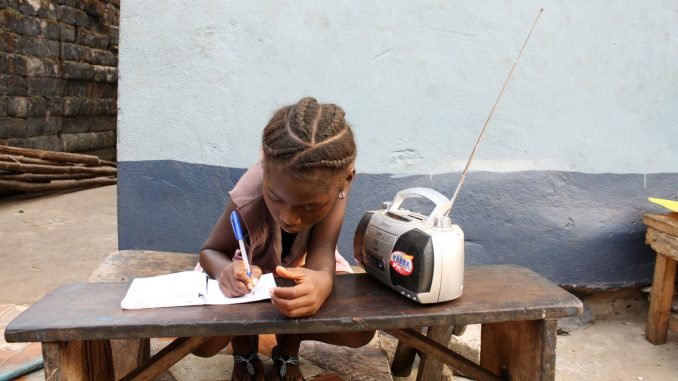
Kampala, Uganda | URN | The Ministry of Information and Communications Technology (ICT) has transferred a total of 500 million Shillings to the Ministry of Education for the delivery of television and radio teaching and learning content during the ongoing lockdown.
Sources from the Ministry of Education indicate that there has been a crisis of identifying funds for the proposed activities due to the fact they had missed out on the 304 Billion Shillings supplementary budget for the country’s COVID-19 response.
The ICT Ministry Permanent Secretary Vincent Bagiire confirms the allocation of the said amount of money saying it will be upon their education counterparts to see how it will be distributed to serve the purpose. “The distribution and itemized allocations will be based on the guidance of the ministry of education,” he observes.
Ismail Mulindwa, the director of basic education says that money will be allocated to selected radio and TV stations that broadcast in areas unreached by the national broadcaster-Uganda Broadcasting Corporation, the main partner in implementing the program.
A total of 37 stations across the country were picked up with at least three or two perceived most listened to in a particular region. A few radio stations that this publication has talked to have already availed airtime for the said broadcast but are yet to receive confirmation of payment from the Ministry of Education.
There are a total of 74 lessons that are planned to be aired taking over two and a half hours daily. The average amount of money for a radio program is one million Shillings. But Mulindwa says they want to ensure that radio stations will offer airtime at a subsided price.
The National Curriculum Development Centre (NCDC) is still transcribing the content into radio and TV scripts. The said content will be prerecorded by the education department at UBC. Winston Agaba, the UBC managing director, notes that other radio and TV stations who would wish to broadcast the material are free to tap into national broadcaster as they wish so.
In the same development, limited funding is also bound to affect the distribution of self-help materials which could be the alternative to the TV and radio program.
Dr Bernadette Nambi, NCDC Deputy Director, notes that they are also constrained by funds which have led to delays in the production of reading materials. Although Dr Nambi declined to reveal NCDC’s working budget, she explains that so far they have only been able to produce 50 per cent of required materials.



